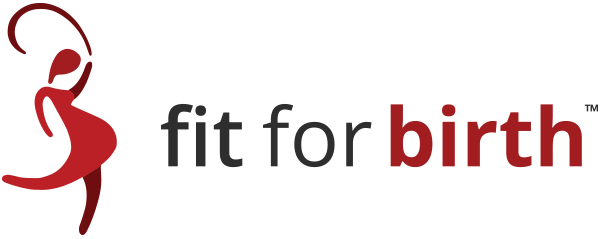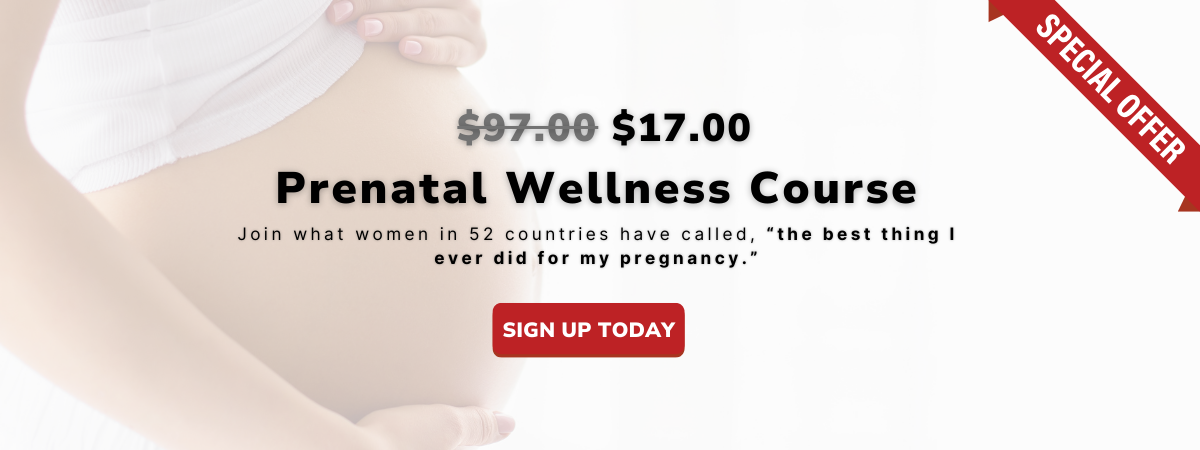Last Updated 4/19/24
Evidence in hormonal and epigenetic influences are proving that thoughts really do transfer to the baby you are nurturing in your womb. Did you know that your unborn baby is a deeply sensitive individual who forms a powerful relationship with his or her parents, and the outside world, while still in the womb?
Research continues to emerge, proving how the link between negative thoughts, emotions, and the prenatal stress response hurts the unborn child while joyful loving emotions nurture your unborn baby. Here is what you need to know.

What can cause stress in pregnancy?
Pregnancy is a time of rapid change, and we humans are commonly stressed by any change, especially if it’s unexpected. Prenatal stressors can be:
- Physical: As your body changes, you may feel stressful discomforts, aches and pains
- Mental-Emotional: You may worry about the health of your child, the outcome of pregnancy check-ups & tests, who to invite to a baby shower, having enough financial reserves to take time off of work, or not gaining too much weight.
Literally anything you can think of can raise your levels of stress.
The crazy thing about prenatal stress (really any stress) is that it can come in so many forms, and on opposite ends of the same spectrum. For example, physical stress can occur from being sedentary (exercising too little), as well as from over-exercising. Do you work too much, or do you need a meaningful job to balance your life? Regarding your mental health, do you need to set more boundaries, learning to say “no” more often, or conversely, do you need to say “yes” and stop being so closed off to the support that is being offered to you?
What aspects do you have in your life that are too little, or too much, compared to being in balance for you at this time of your life?
How can stress affect my baby and me?
When high levels of prenatal stress affect you, they also affect your baby. The hormones associated with stress float throughout your body, via the nervous system and bloodstream. These hormones are things like cortisol and adrenaline.
When these hormones enter our system for a short time, our bodies thrive from their boost. We are more easily able to work harder, stay up later or push through whatever. But when these hormones stay in our system for longer periods of time, they divert resources from our reproductive hormones, our immune system, and our ability to heal wounds, grow cells, and ultimately develop our in-utero baby.
How long is too long? Think of it like the amount of time it would take you to escape the attack of a lion.
Most people use the term “stress” as the negative repercussions that occur, so we will continue to do so here in this article as well.

Negative thoughts during pregnancy affect baby
It is primarily your thoughts that control your levels of prenatal stress. This is certainly true of mental-emotional stressors, but can even be true for at least some physical stressors.
Mental-Emotional examples include the list discussed earlier, like worrying about the health of your child, the outcome of pregnancy check-ups & tests, who to invite to your baby shower, having enough financial reserves to take time off of work, or not gaining too much weight.
Physical examples are fascinating to consider, because they also have a mental-emotional factor. Imagine, for example, two pregnant people participating in an extraordinarily intense fitness class for one month. Technically, over-doing some forms of exercise in this manner can be negatively stressful physically if the person is unable to recover, heal, and rebuild body tissues between sessions.
But in addition to a physical stressor, there is a mental component. If one pregnant person spends her class-time thinking thoughts like, “I can’t stand this,” “How can they put pregnant women through this much exercise,” and “I should never have paid for this class but now it’s too late to get out of it,” she will have the additional load of chronic negative mental-emotional stress.
On the other hand, if another pregnant person spends her class-time thinking thoughts more like, “Wow, I’m really keeping up with this,” “I am becoming such a fit pregnant person,” “I know people are watching my pregnant belly, and I like showing them I can do it,” she will not suffer the consequences of any additional mental-emotional negative stress.
“Mental health is an integral part of health and well-being and poor mental health can be detrimental to the woman’s welfare and her infant’s behavior and cognitive development.” (2019: Roberts, et al. Depression, anxiety, and post-traumatic stress disorder following a hypertensive disorder of pregnancy: A narrative literature review. Frontiers in Cardiovascular Medicine.)

How can I reduce stress during pregnancy?
Reducing stress during pregnancy requires getting deeply in touch with the thoughts that are driving your emotional responses, and then deciding to either change or accept.
Let’s use, for example, if a prenatal appointment reveals a low birth weight baby. What can you change and what can you accept?
First, acknowledge the sensations that you feel in your body. Does your solar plexus tighten or feel static? Do you feel a deep focused dense darkness in your heart? Identifying the sensations beneath the emotional stress helps to make sure you do not bypass or suppress these feelings. We don’t want to store them in your body, so we need to be present with them.
Second, identify what emotion this is for you. Is it more like worry and frustration, or fear and powerlessness? OR something else? Identifying where you are on the emotional guidance scale will help you continue to process these emotions, and is the next step for giving them a chance to lighten. What you don’t want to do is fight against them, or even hurry to get away from them. Adding more “fight” or “escaping” to already-existing negative emotion just doubles the prenatal stress load.
Third, identify what thoughts may be behind these sensations and challenging emotions. We are not always aware of our thoughts, so taking a moment to slow down and consider what our thoughts actually are – in any given moment – is a great mindfulness or journaling practice.
Fourth, ask yourself, “Is there any further space for me to accept this?” When we say accept, it does not mean “give up.” Instead, it is your next opportunity for you to again make sure that you are not trying to fight or escape. It is here. It has happened. Is there any additional peace through acceptance that you can find?
Fifth, now that you have given yourself an opportunity to process mental-emotionally, ask yourself, “Is there anything I can do to help this situation?” In our example of a low birth weight baby, you might search for ways to eat more nutritious foods, drink more water, get to sleep earlier, and of course address your mental-emotional stress habits.
What are the signs of depression?
Depression is a common but important mood disorder that affects how you feel, think, and handle daily activities. The signs and symptoms of depression can vary in severity, but can include: persistent sadness, loss of interest, inability to find pleasure, changes in appetite, too little or too much sleep, fatigue, feelings of worthlessness, difficulty concentrating or making decisions, irritability, and frequent thoughts of suicide.
Approximately one out of every four mothers will experience depression and anxiety during their pregnancy and in the first year after giving birth. (2023: Leng, et al. Comprehensive Psychiatry.)
How does depression affect pregnant women?
First, depression just sucks. It feels bad. It is a representation of the lowest emotional vibration that human beings feel. It is a wallowing of mental-emotional angst. And thanks to this subsequent drain, it goes on to hurt your physical body processes too, like healing, immunity, and growing an unborn baby.
“Studies report that exposure to untreated depression and stress during pregnancy may have negative consequences for birth outcome and child development.” (2015: Pearlstein, Teri MD. Depression during pregnancy. Best Practice & Research Clinical Obstetrics & Gynaecology)
“Maternal depression has been associated with preterm birth, low birth weight, fetal growth restriction, and postnatal cognitive and emotional complications.” (2016: Beckler et al. Depression during pregnancy and postpartum. Current Psychiatry Reports)
What’s the difference between “baby blues” and postpartum depression?
The “baby blues” and postpartum depression are two distinct postnatal experiences, with baby blues being very common and typically involving mild symptoms like mood swings and crying spells, usually starting within the first few days after delivery and lasting up to two weeks. These symptoms generally resolve on their own and may be attributed to hormonal changes and life adjustments.
In contrast, postpartum depression is a more serious condition that can include severe symptoms like persistent sadness, withdrawal, and thoughts of self-harm or harm to the baby.
Unlike the baby blues, postpartum depression can appear at any time during the first year after childbirth and may persist for months if untreated, requiring professional intervention through counseling, medication, or support groups. It’s important to differentiate between these two conditions, as postpartum depression is a major depressive disorder and a significant mental health issue that necessitates medical attention.
Post-Traumatic Stress Disorder
Post-traumatic stress disorder (PTSD) can have a significant relationship with prenatal stress & postpartum depression:
- Research suggests that childbirth may be a significant cause of PTSD in women. (2014: Grekin & O’Hara. Prevalence and risk factors of postpartum posttraumatic stress disorder: a meta-analysis. Clinical Psychology Review.)
- “Beyond postpartum depression, postpartum women suffer from a posttraumatic stress-depressive response in the wake of a traumatic childbirth experience.” (2019: Dekel, et al. Beyond postpartum depression: posttraumatic stress-depressive response following childbirth. Archives of Women’s Mental Health.)
- Up to one-third of women in the U.S. describe childbirth as traumatic, with 9% meeting the criteria for post-traumatic stress disorder outlined by the American Psychiatric Association. (2016: An evidence review and model for prevention and treatment of postpartum posttraumatic stress disorder. Nursing for Women’s Health.)
Reasons for this are specific to each person and each experience, but can include:
- Unexpected or unwanted interventions like c-section, forceps, vacuum, or episiotomy
- Feelings of loss of control in highly medicalized environments
- Fear for baby’s safety if complications arise
- Feeling unheard or dismissed by medical staff
- Unexpected intensity & duration of labor
- Pre-existing mental health conditions
- Previous traumatic experiences
- Cultural and personal expectations
Can depression be cured?
The term “cure” in relation to depression is tricky. First consider that the word “cure” has been taken by pharmaceutical companies to mean something more akin to “cure by pharmaceutical interventions and drugs.” Others who claim to cure illness by other methods are not supposed to use the word cure, for risk of being considered unreliable medically unapproved information.
Meanwhile, the business model of pharmaceutical companies is inherently positioned to not find a cure. As succinctly written in a Medpage Today article, “If you develop a new drug that cures people rapidly, then patients will not need to take the drug on an ongoing basis, and that limits the amount of money a company can make.” (2018: Packer, Milton, MD. Medpage Today.)
With these modern-day logistics in mind, a 2023 systematic review and meta-analysis in the Journal of Psychopharmacology found “cautious optimism.” It analyzed 115 previous research studies, covering 48 treatments that they considered to be “accepted pharmacological and psychological interventions.” Combining various antidepressants gets better results than using just one. (2022: Henssler et al. JAMA Psychiatry.)
Another small 2022 study in the Journal of Complementary and Integrative Medicine found that taking homeopathic treatments in addition to antidepressants allowed patients to significantly recover. This study stated that, “Of the 31 patients with depression, 13 recovered within 2 years of starting homeopathic treatment, and 11 completely recovered from chronic depression.”
Moving on from external medicines, a 2019 systematic review of Cognitive Behavioral Therapy (CBT; talk therapy) found this form of talk psychology to be “an effective treatment for depressed adults.” A 2022 study combining both CBT and DBT (which contains a stronger focus on acceptance, emotional regulation and relationship-building) found that “patients experienced a categorical decrease in anxiety and depression.” (2022: Flabella, et al. Cognitive and Behavioral Practice.)

Are there other things that might help someone move through or overcome depression? Sure there are!
- Fitness! “Exercise ameliorates depressive symptoms, improves self-esteem, and enhances various aspects of quality of life.” (2023. Blumenthal & Rozanski. Progress in Cardiovascular Diseases.)
- Nutrition! “The onset, persistence, and severity of depressive disorders in addition to the seriousness of depressive symptoms, are significantly influenced by nutrients, foods, and other dietary components.” (2023: Sharma, et al. Journal of Population Therapeutics and Clinical Pharmacology.)
- Sleep! “Sleep disturbance is a modifiable risk factor in the development and maintenance of depression.” (2023: Riya, et al. Current Opinion in Psychiatry.)
- Mindfulness! Mindfulness-based intervention, like meditation, “was superior [compared to those who did not practice mindfulness for] perinatal depression and anxiety. The benefit for depression reduction was stable over time and sustained to the postpartum period.” (2023: Leng, et al. Comprehensive Psychiatry.)
For a deeper description of 5 strategies for managing emotions during pregnancy, visit How a Mother’s Emotions Affect Her Unborn Child.
Find support
If you are currently experiencing an emergency, call your local emergency number.
Otherwise, support can come in a variety of forms, as discussed in the above section (pharmacology, CBT talk therapy, DBT mindfulness, homeopathy, fitness, nutrition, sleep, and meditation). Selecting the right form of support for you will depend upon your specific preferences as well as needs.
If your depression symptoms are severe, you need to consider contacting a professional, to at least ask some questions.
–>You can talk to a counselor by calling the National Maternal Mental Health Hotline at (833) 852-6262 for FREE confidential support before, during and after pregnancy (24/7 English and Spanish).
If your depression symptoms are more mild, then consider what areas in the lists above may be most missing from your life. Do you already have a fitness routine and would like to explore talk therapy? Do you already do talk therapy, but haven’t yet made daily exercise consistent in your life?
These are the kinds of questions to ask yourself as you step farther along the path toward feeling well.
Remember…
In Biology of Belief, cell biologist, neuroscientist, and Stanford researcher, Bruce Lipton, PhD, discusses how thoughts “perceived by their mothers before birth” allow the unborn infant to “optimize their genetic and physiologic development.”
Let’s do more of that!
“Pregnancy is not just something that is happening to you; it is a miraculous unfolding that you are co creating. For nine months, you are your baby’s environment, and your baby is affected by each one of your experiences.”
Deepak Chopra, MD, Magical Beginnings, Enchanted Lives
———————————————————–
If you would like fun fitness & meditation coaching for you during your pregnancy or postpartum, please consider Fit For Birth personal training as well as our Online Prenatal Courses & Programs.
And if you want to boost your physical and mental-emotional health sign up now for our Free Online Pregnancy and Postpartum Group Exercise Classes! They are literally FREE for the time-being!! Let us help you structure your own fitness & mindfulness routine!
—————————————————-
James Goodlatte is a Father, Holistic Health Coach, Corrective Exercise Practitioner, Speaker, Author, Professional Educator, and the founder of Fit For Birth. Since 2008, when he found out he would be a father, his passion for holistic wellness shifted to children and families. Today, he is a driving force in providing Continuing Education Credits for the pre and postnatal world, with Fit For Birth professionals in 52 countries. James is also the program director for Fit For Birth pre & postnatal personal training worldwide, and is a contributing member of the First 1000 Days Initiative at the Global Wellness Institute.

